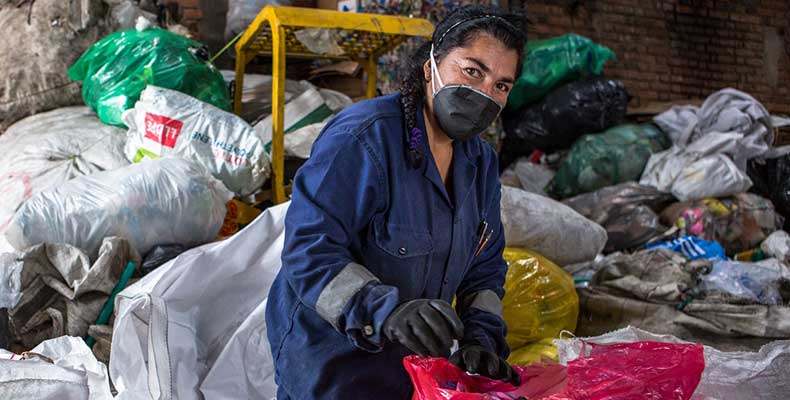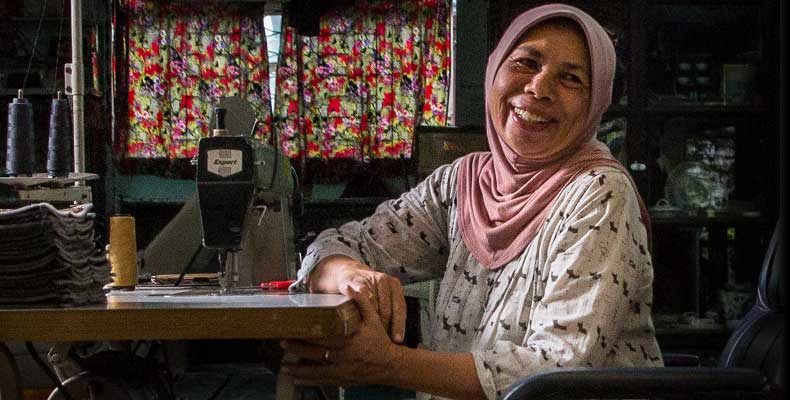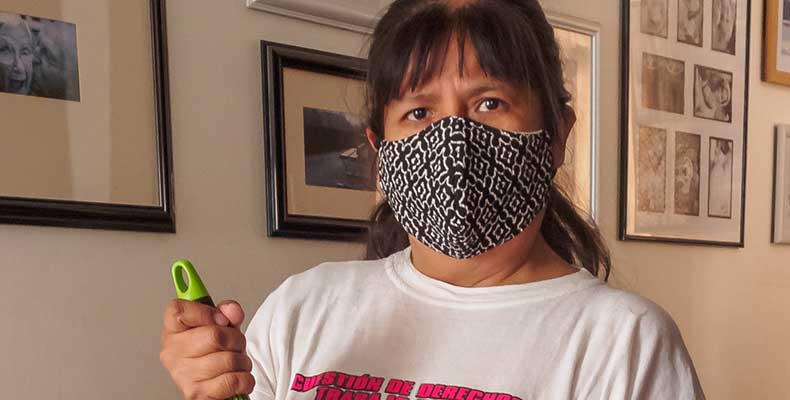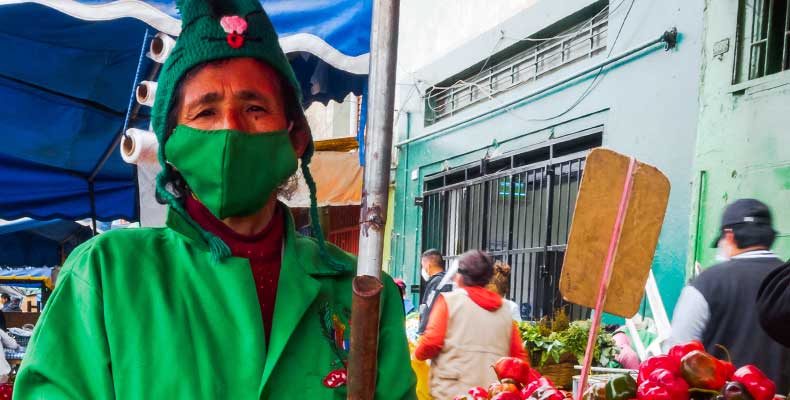
WIEGO is focused on the devastating impact of this crisis for the world’s two billion informal workers. We are striving to ensure that informal workers’ issues are addressed, sharing information and advocacy tools, and arguing for policies and plans that include informal workers.
Informal workers and their families face additional health risks and economic impact. Many live and work in crowded public spaces with little or no access to water and sanitation, and have no access to health care. Because informal workers depend on their daily earnings to survive, they face the risk of falling into extreme poverty as a result of government-ordered lockdowns and economic disruptions. Women informal workers face additional challenges because of their care and domestic responsibilities.
How WIEGO supports
Because we know that the crisis is affecting different groups of workers differently, the approach to each must be unique.
Researching the Impact of COVID-19 on Informal Workers
COVID-19 Crisis and the Informal Economy Study
There are no economic indicators so important or revealing as the words of workers. Today, the voices of informal economy workers, who constitute 60% of the world’s workforce, are helping us unpack the hardship, injustice, and possibility for transformation within our economic system, laid bare by COVID-19. Read more
Rapid assessment of impact on informal workers
Between 23 March and 8 April 2020, WIEGO conducted a rapid assessment with informal worker leaders and others who work closely with them to understand how COVID-19 and the related public health measures are impacting informal workers in Africa, Asia and Latin America. Both a preliminary report and an e-book details what we learned.
Analysis of the data of this rapid assessment also in this blog for OECD Development Matters: Laura Alfers, Jenna Harvey and Rachel Moussié, who led the rapid assessment, share insights—and assert that short-term safety nets are important in the immediate crisis, but longer-term thinking about recovery and income security for informal workers should be part of the policy response.
COVID-19 related blogs
View a full list of COVID-19 related blog posts
COVID-19 podcast episodes
WIEGO’s podcast explores some of the most pressing issues faced by the world’s informal workers. It features experts from around the globe. Listen now
Supporting Informal Workers and Their Organizations
Support informal worker campaigns
In this global crisis, organizations of informal workers have established fundraising campaigns to raise support. Read more
Advocacy and Action
WIEGO is gathering and analyzing information from around the globe to capture the impact of this global pandemic on the world's two billion informal workers. Here, we capture just a few of the leading advocacy efforts to alleviate the suffering this crisis is causing, and the longstanding inequality in the world of work that it has underlined. Read more
Workers’ Voices
Workers' Voices Webinar Series
The COVID-19 crisis has made in-person exchange between informal workers more challenging. With this in mind, WIEGO facilitates exchange between workers across sectors and countries. WIEGO's Workers’ Voices Webinar Series aims to provide a space where membership-based organizations (MBO) and networks of informal workers can learn about innovative policy advocacy and organizing strategies during the COVID-19 crisis; and positive policy responses and/or MBO interventions which support informal workers during the pandemic.
Women Leaders
For International Women's Day, WIEGO amplified the voices of women leaders whose organizations stepped up to provide relief when governments failed to do enough during the COVID-19 pandemic. These are their stories.
Coping in Crisis: South African Workers' Lives
WIEGO undertook an advocacy initiative with UN Women that gives an in-depth account of the experiences of women informal workers in South Africa during the COVID-19 crisis. The narratives, video and policy paper highlight the contribution and struggles of women informal workers and raise awareness among government, policy makers and the general public of their situation.
Finding Solutions
WIEGO is striving to ensure that informal workers’ issues are heard, understood and addressed. We are providing information and advocacy tools for informal worker organizations, and helping them advocate for local/national policies and schemes that include informal workers.
We are keeping track of Informal Workers' Demands and of emergency Government Responses that provide some form of social protection for informal workers.
From late March to end April 2020, WIEGO tracked governments' social protection responses to COVID-19 and produced a series of briefs in order to support movements in their advocacy efforts to expand social protection to informal workers in this period of crisis. Read more
As a result of WIEGO's work with the policy research group SPACE to assist governments in evaluating responses to the COVID-19 crisis, we created this matrix about the technical considerations for analysing policy responses for informal workers. It is based on the information in this article written by Laura Alfers for SPACE.
Top photo: Mwanahamisi Hassan is a 22 year old Domestic Worker from Dar es Salaam, Tanzania. Credit: Fanuel Halelw




